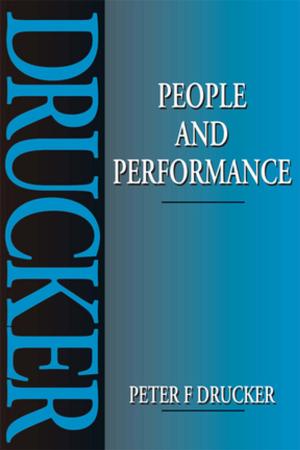Impasse and Innovation in Psychoanalysis
Clinical Case Seminars
Nonfiction, Health & Well Being, Psychology, Applied Psychology, Psychotherapy, Mental Health| Author: | ISBN: | 9781134886418 | |
| Publisher: | Taylor and Francis | Publication: | May 13, 2013 |
| Imprint: | Routledge | Language: | English |
| Author: | |
| ISBN: | 9781134886418 |
| Publisher: | Taylor and Francis |
| Publication: | May 13, 2013 |
| Imprint: | Routledge |
| Language: | English |
Impasse and Innovation in Psychoanalysis offers a rare perspective on the technical difficulties and creative responses to them that typify clinical psychoanalysis. The four seminars at the heart of this volume are not case reports in the usual sense. Rather, each seminar revolves around the challenges of translating an understanding of difficult process issues into an effective therapeutic response. What emerges in each case is a vivid picture of an analyst's subjective experience in conceptualizing and managing a particularly demanding treatment, supplemented by data about the patient's history and free associations and enlivened by seminar leader John Gedo's challenging questions and clinical commentary.
Each seminar is framed by Mark Gehrie's introduction and commentary, the latter addressing the interplay of theory and technique in the preceding case. Gehrie's commentary is then followed by Gedo's notes, which are keyed to specific points in the seminar transcript. Gedo not only clarifies issues left in doubt by the original discussion but offers his own second thoughts about the clinical material and its technical handling.
The uniquely dialogic format of this volume brings different voices to bear on issues at the forefront of the evolution of clinical psychoanalysis. Edifying reading for practicing analysts and analytic therapists, Impasse and Innovation in Psychoanalysis is a wonderful teaching tool, introducing candidates, residents, and students to the demands of coping with stressful transferences and enactments and sparkling, throughout, with Gedo's wit and wisdom.
Impasse and Innovation in Psychoanalysis offers a rare perspective on the technical difficulties and creative responses to them that typify clinical psychoanalysis. The four seminars at the heart of this volume are not case reports in the usual sense. Rather, each seminar revolves around the challenges of translating an understanding of difficult process issues into an effective therapeutic response. What emerges in each case is a vivid picture of an analyst's subjective experience in conceptualizing and managing a particularly demanding treatment, supplemented by data about the patient's history and free associations and enlivened by seminar leader John Gedo's challenging questions and clinical commentary.
Each seminar is framed by Mark Gehrie's introduction and commentary, the latter addressing the interplay of theory and technique in the preceding case. Gehrie's commentary is then followed by Gedo's notes, which are keyed to specific points in the seminar transcript. Gedo not only clarifies issues left in doubt by the original discussion but offers his own second thoughts about the clinical material and its technical handling.
The uniquely dialogic format of this volume brings different voices to bear on issues at the forefront of the evolution of clinical psychoanalysis. Edifying reading for practicing analysts and analytic therapists, Impasse and Innovation in Psychoanalysis is a wonderful teaching tool, introducing candidates, residents, and students to the demands of coping with stressful transferences and enactments and sparkling, throughout, with Gedo's wit and wisdom.















